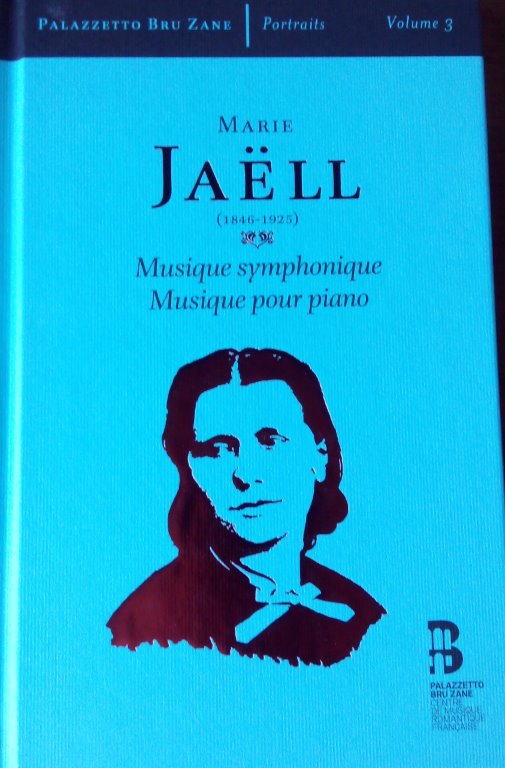Had her name been Marc, Marie Jaëll (1846-1925) was undoubtedly considered one of the important French composers of the late nineteenth, early twentieth century. But then again, she was once a woman - so unimportant. During her lifetime praised by none other than Franz Liszt, she was soon forgotten after her death. At most, she lived on in the piano method she developed. The foundation Palazzetto Bru Zane now puts her music back on the map, with an exemplary three-CD release and a book written in both French and English.
At least, it is to be hoped that concert organisers will want to listen to and programme her compelling compositions. My experiences are not favourable in this respect. For instance, for years I peddled in vain the opera The Wreckers by Ethel Smyth. Wonderful, wonderful, they thought, but she had 'listened very carefully' to Peter Grimes By Benjamin Britten. - That the latter had not even been born yet when Smyth completed her work made no impression. Had she been a man, her opera would certainly have been hailed as the discovery of the century. After all, who was listening to whom here?
But we live in 2016 and women are on the rise, as witnessed also by the 'more-women-action' by Arjen Lubach. For Marie Jaëll, I have high hopes, especially as her powerful music is performed at the highest level, including by the Brussels Philharmonic Orchestra conducted by Hervé Niquet.
In her song cycle La Légende des ours (Legend of the Bears), she sketches the tragic love affairs of a bear couple. In this, Jaëll grabs you by the skin right from the opening bars with a rousing rhythm and low growling strings, aptly evoking the image of a bear approaching.
Masterfully, Jaëll draws the many different moods: from exuberant mirth to expectant excitement, drooling in love, agony and deep sadness. Her orchestral handling is impressive, with passages rising from the very lowest regions to the thinnest heights. She is a sorceress with timbres and always keeps the fabric transparent, no matter how dense and sonorous it is.
Notable are the Spanish-tinged ornamentations in the soprano part, which give the music a joyous and exotic touch. At the same time, Jaëll creates an un-French kind of heaviness, evoking associations with the pathos of a contemporary like Tchaikovsky. Thus she pairs effortless French elegance to Spanish temperament and Russian drama. This highly theatrical song cycle makes it all the more unfortunate that her opera Runéa never completed.
Jaëll also lets the individual orchestral musicians shine frequently in unctuous solos. Her particular flair for writing appealing melodies and shimmering harmonies is also reflected in the other orchestral works on this release. In terms of lyricism, her Cello Concerto is not inferior to the concertos of Antonin Dvorák or Camille Saint-Saëns - with whom she studied for some time.
Her two passionate piano concertos also undoubtedly deserve a place in the standard repertoire. It is good to hear that she started out as a piano virtuoso and was compared by contemporaries to Franz Liszt, whose piano music she performed frequently. 'She has the brain of a philosopher and the fingers of an artist,' Liszt said of her.
Marie Jaëll studied fingerings and touch intensively in order to most effectively express the music and its underlying emotions. She wrote several books on the subject and developed her own piano method, which is still used today. The CDs also include the two piano cycles Les Beaux Jours and Les Jours pluvieux, which in their poetic beauty rival the much better-known Kinderszenen of Robert Schumann to the crown.
We recognise a lighter touch in the Douzes valses et Finale which she composed for concerts with her husband Alfred Jaëll, with whom she performed throughout Europe and Russia. Parts of the more experimental Ce qu'on entend... give an insight into the scientific way she explored the possibilities of sound projection. The texts in the book paint a good picture of the life and work of the headstrong Jaëll, whose powerful voice deserves to be heard in all concert halls.
Hello programmers, are you there? - I have already messaged Arjen Lubach.

